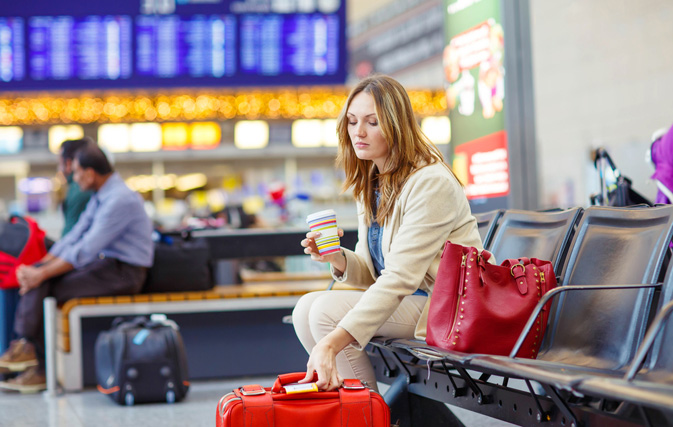TORONTO — The travel industry will need its powers of persuasion out in full force this winter, with six in 10 (58%) Canadians indicating they are “not confident” they will take a winter vacation this year. On the bright side, the 42% of travellers who are anticipating a winter getaway plan to spend at least as much as last year (58%) if not more (16%). And a larger majority of Canadians (68%) do expect to take a vacation within the next 12 months.
“One concern for Canadians considering travel in winter could be the costs of cancellation, especially when you look at the average cost Canadians say they will spend on a winter vacation: $2,593.20 per household,” said Dan Keon, Director, Marketing and Communications, Allianz Global Assistance. The stats are part of the inaugural Allianz Global Assistance 2016 Canadian Winter Vacation Confidence survey, released today.
Travel insurance can typically recover up to 100% of eligible prepaid travel-related expenses lost due to covered reasons for cancellations, he noted.
The survey also showed that 36% of Canadians haven’t had a vacation for more than two years. “Clearly many Canadians all across the country are in need of a well-deserved break,” said Keon.
Additional Survey Results
- Men (47%) are more confident than women (37%) that they will take a winter vacation.
- While men (69%) and women (70%) find annual vacations almost equally important, men (40%) are more likely than women (31%) to take an annual winter vacation.
- Canadian households with kids (49%) are more confident than those without kids (40%) that they will take a winter vacation.
- Nearly half of Canadians took their most recent vacation within the past 12 months, while one in three Canadians have not been on vacation in more than two years.
- Canadian households with an income above $100,000 are the most likely (59%) to take an annual winter vacation, with percentages steadily increasing as disposable income increases: less than $40,000 (24%), $40,000-59,999 (34%) and $60,000-99,999 (46%).
- . Households with children expect to spend just over the national average on their vacation’s travel, accommodation and entertainment costs: $2,759.00.
- At $3,394.50, Canadians aged 55+ anticipate spending much more than the national average per household on their vacation.
- When compared to the U.S., Europe, Great Britain and Mexico, China is the destination that across the board all demographics are the least likely to visit regardless of how the Canadian dollar compares to the local currency.
- When looking at vacation plans in the past 12 months, Canadians aged 55+ (68%) allow the value of the Canadian dollar to influence their travel plans the least.
Regional Highlights
- British Columbia: Least likely (37%) to take a winter vacation this year.
- Expect to spend more than the national average per household on vacation: $3,342.70.
- For 53% of BC residents, this is about the same amount as they spent on last year’s vacation.
- The value of the Canadian dollar is more likely to deter travel to Europe (22%) than the United States (18%).
Alberta
- Most likely (41%) to take an annual winter vacation just ahead of Quebec (40%).
- Expect to spend more than the national average per household: $3,214.90.
- Least likely to have gone more than two years (28%) without a vacation.
- Consider taking an annual vacation important the most (75%) compared to other provinces.
- Along with Quebec, the most confident they will take a vacation in the next 12 months (71%).
Prairies
- Along with British Columbia, the most likely to spend more than last year (21%) on this year’s winter vacation.
- Expect to spend more than the national average per household: $3,359.30.
- Most likely to not consider annual vacations important (37%) compared to other provinces.
- Least confident they will take a vacation in the next 12 months (63%).
- Most likely (26%) to say that comparing the Canadian dollar’s value with the Euro would prevent travel.
Ontario
- Expect to spend more than the national average per household: $2,617.90.
- The second least likely (37%) just behind British Columbia (38%) to not have the current value of the Canadian dollar affect possible travel to the United States.
- Also the second least likely (66%) behind British Columbia (69%) to not allow the current value of the Canadian dollar to affect travel plans over the past 12 months.
- The most likely (11%) along with Alberta to change planned travel dates due to the value of the Canadian dollar.
Quebec
- Anticipate spending the least on their winter vacation per household: $1,861.40.
- The most confident (46%) that they will take a winter vacation this year just ahead of Alberta and the Atlantic (45%).
- Second most likely (40%) behind Alberta (41%) to take an annual winter vacation.
- The value of the Canadian dollar is more likely to deter travel to Europe (20%) than the United States (18%).
- The highest percentage (41%) that have not taken a vacation in more than two years.
Atlantic Canada
- Least likely (26%) to take an annual winter vacation.
- The least likely (9%) to spend more than last year on this year’s winter vacation.
- Expect to spend near the national average per household: $2,291.90.
- The second highest vacation cancellation rate in the past 12 months (19%) due to the value of the Canadian dollar.

